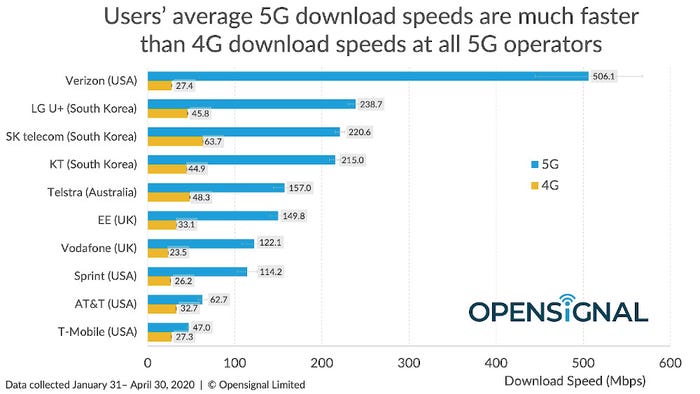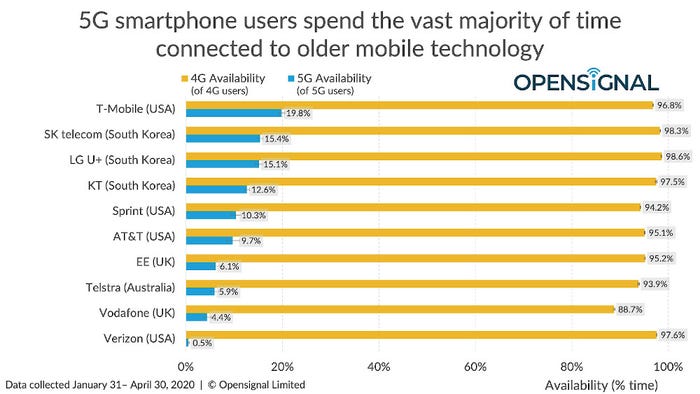What’s the point of super-fast 5G when it’s hardly ever available?
New findings from network performance tracker Opensignal reveals that Verizon had by far the fastest 5G speed, but it’s only available to 0.5% of users.
May 21, 2020

New findings from network performance tracker Opensignal reveals that Verizon had by far the fastest 5G speed, but it’s only available to 0.5% of users.
Opensignal took a look at the 5G situation with operators in the US, UK, Australia and South Korea. It found that Verizon is knocking it out of the park, with average 5G download speed of over 500 Megabits per second. The next best was LG U+ in Korea, which only manage around half that rate. The rest of the US operators were miles behind, but all ten of the operators assessed were at least doubling their 4G data rate.

The reason for Verizon’s exceptional numbers is that it’s 5G is all about millimetre wave, so it’s using acres of spectrum, to create a much fatter pipe. Its US competitors, in contrast, are currently using far more limited amounts of low frequency spectrum for their 5G, hence the much lower speeds. Seems like a no-brainer then, to switch to mmWave sharpish, doesn’t it? But it’s a bit more complicated than that.
One of the reasons the mobile industry didn’t move to higher frequencies before 5G is because, frankly, it’s rubbish. Specifically the range and propagation characteristics deteriorate significantly once you get much above 2-3 GHz and the trend continues as you keep going. That’s why, when Opensignal had a look what proportion of subscribers at each operator were able to get hold of 5G, the table was more or less inverted.

“Speed is far from the only important measure of the 5G experience,” said Opensignal’s Ian Fogg, in his accompanying blog. “How much time users are able to enjoy that experience is equally important. There is little point in having the potential to enjoy 5G, if that 5G experience is not often available.” Well, quite.
Telecoms.com Daily Poll:
Should privacy rules be re-evaluated in light of a new type of society?
The user should be given more choice to create own privacy rights (41%, 95 Votes)
Yes, the digital economy requires a difference stance on privacy (31%, 72 Votes)
No, technology has changed but privacy principles are the same (28%, 66 Votes)
Total Voters: 233
About the Author
You May Also Like










.png?width=300&auto=webp&quality=80&disable=upscale)


_1.jpg?width=300&auto=webp&quality=80&disable=upscale)